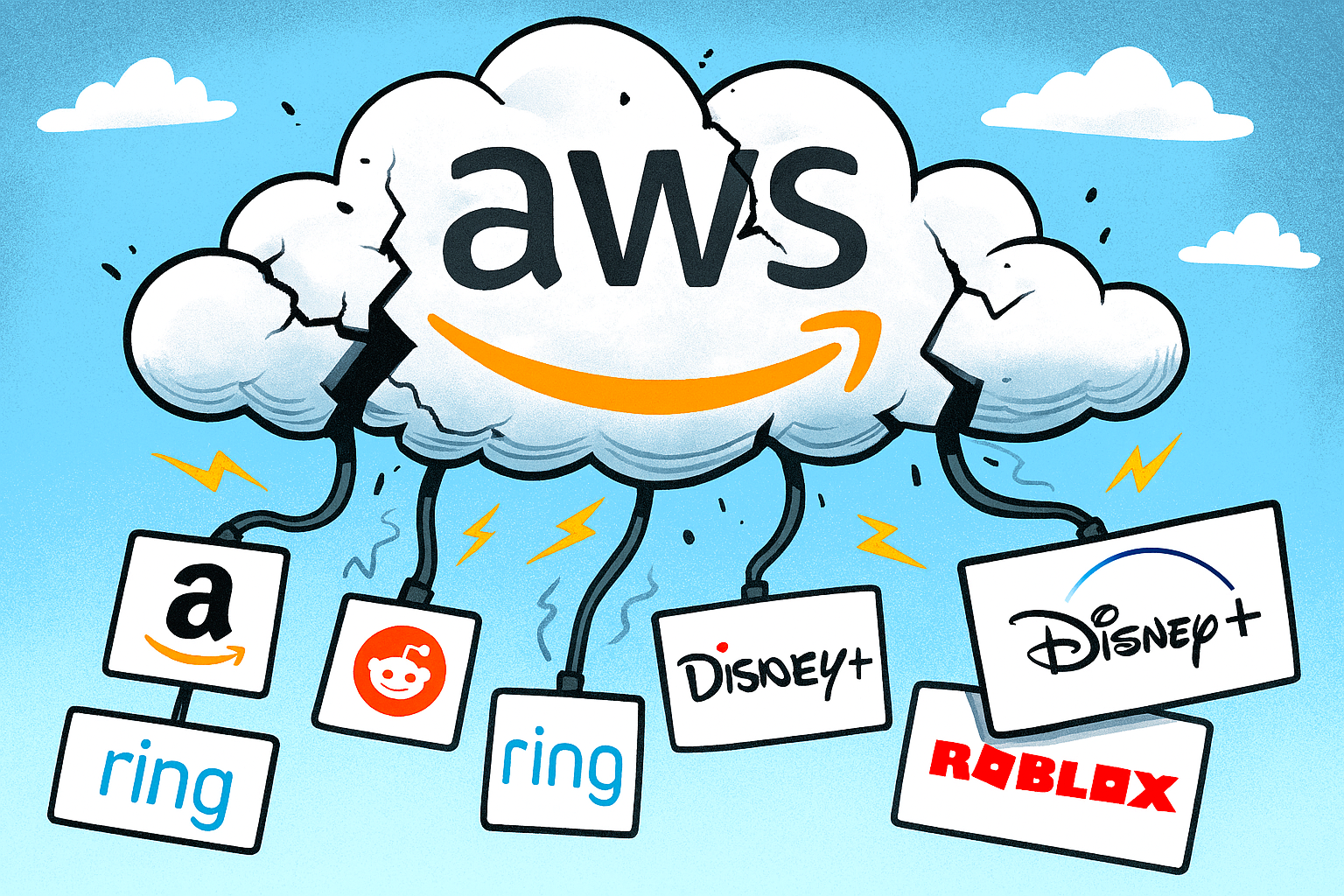It was just one week ago on Monday 20th October 2025, Amazon Web Services (AWS) experienced a major outage that rippled across the digital world, disrupting operations for millions of users and businesses.
The incident, which originated in AWS’s US-East-1 region, was reportedly traced to DNS resolution failures affecting DynamoDB—one of AWS’s core database services.
This technical fault triggered cascading issues across EC2, network load balancers, and other critical infrastructure, leaving many services offline for hours.
The impact was immediate and widespread. Major consumer platforms such as Snapchat, Reddit, Disney+, Canva, and Ring doorbells went dark.
Financial services including Venmo and Robinhood faltered, while airline customers at United and Delta struggled to access bookings. Even British government portals like Gov.uk and HMRC were affected, underscoring the global reach of AWS’s infrastructure.
World leader
AWS is the world’s leading cloud provider, commanding roughly one-third of the global market—well ahead of Microsoft Azure and Google Cloud.
Millions of companies, from startups to multinational corporations, rely on AWS for everything from data storage and virtual servers to machine learning and content delivery.
Its services underpin critical operations in healthcare, education, retail, logistics, and media. When AWS stumbles, the internet itself feels the tremor.
20 Prominent Companies Affected by the AWS Outage (20th Oct 2025)
| Sector | Company Name | Impact Summary |
|---|---|---|
| E-commerce | Amazon | Internal systems and Seller Central offline |
| Social Media | Snapchat | App outages and delays |
| Streaming | Disney+ | Service interruptions |
| News | Partial outages, scaling issues | |
| Design Tools | Canva | High error rates, reduced functionality |
| Smart Home | Ring | Device connectivity issues |
| Finance | Venmo | Transaction delays |
| Finance | Robinhood | Trading disruptions |
| Airlines | United Airlines | Booking and check-in issues |
| Airlines | Delta Airlines | Reservation access problems |
| Telecom | T-Mobile | Indirect service disruptions |
| Government | Gov.uk | Portal access issues |
| Government | HMRC | Service delays |
| Banking | Lloyds Bank | Online banking affected |
| Productivity | Zoom | Meeting access issues |
| Productivity | Slack | Messaging delays |
| Education | Canvas | Assignment submissions disrupted |
| Crypto | Coinbase | User access failures |
| Gaming | Roblox | Server outages |
| Gaming | Fortnite | Gameplay interruptions |
This outage wasn’t the result of a cyberattack, but rather a technical fault in one of Amazon’s main data centres. Yet the consequences were no less severe.
Amazon’s own operations were disrupted, with warehouse workers unable to access internal systems and third-party sellers locked out of Seller Central.
Canva reported ‘significantly increased error rates’. while Coinbase and Roblox cited cloud-related failures.
The incident serves as a stark reminder of the risks inherent in centralised cloud infrastructure. As digital life becomes increasingly dependent on a handful of providers, the potential for systemic disruption grows.
A single point of failure can cascade across industries, affecting everything from classroom assignments to emergency services.
AWS has since restored normal operations and promised a detailed post-event summary. But for many, the outage has reignited questions about resilience, redundancy, and the wisdom of placing so much trust in a single cloud giant.
In the age of digital interdependence, even a brief lapse can feel like a global blackout.



